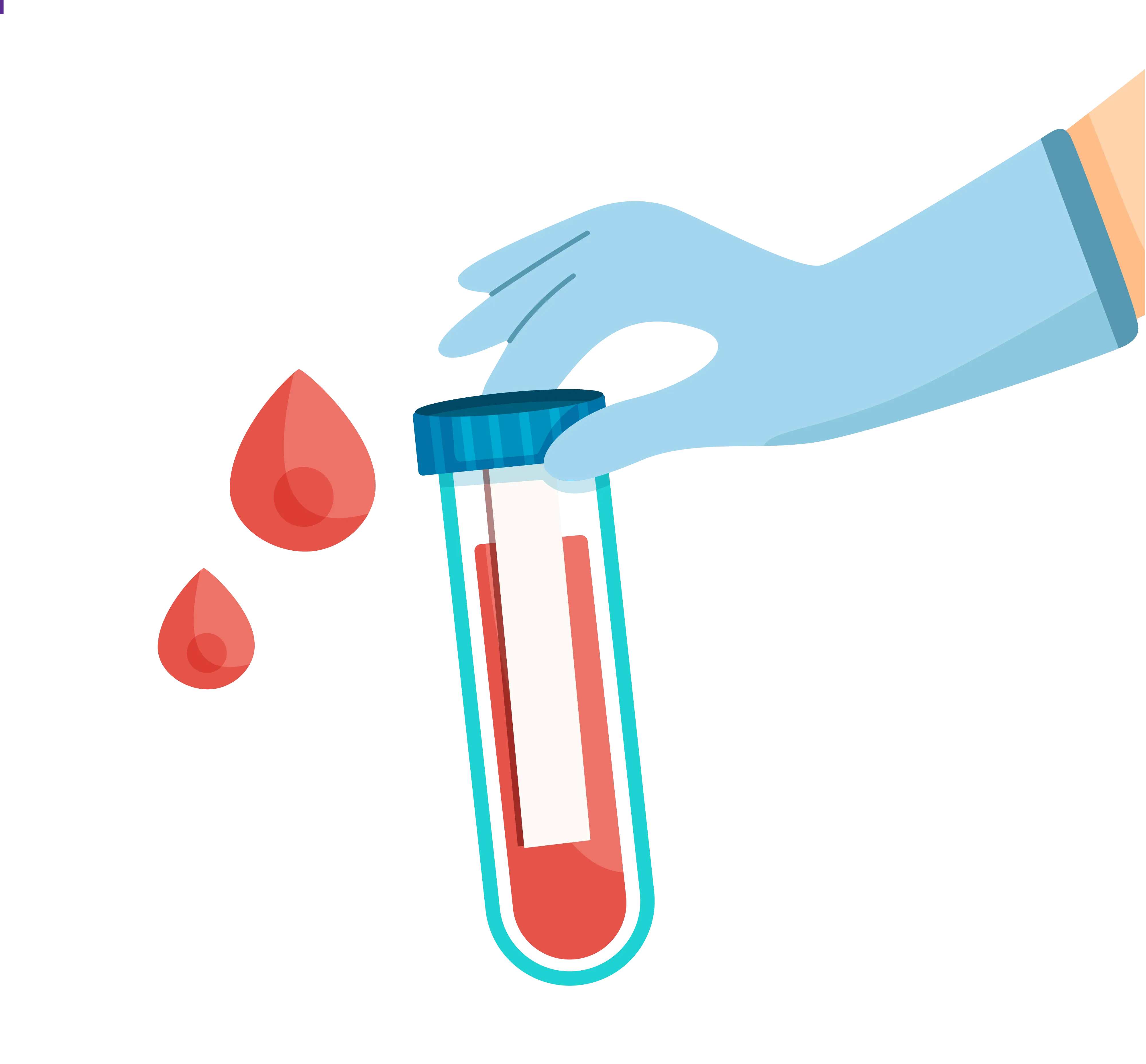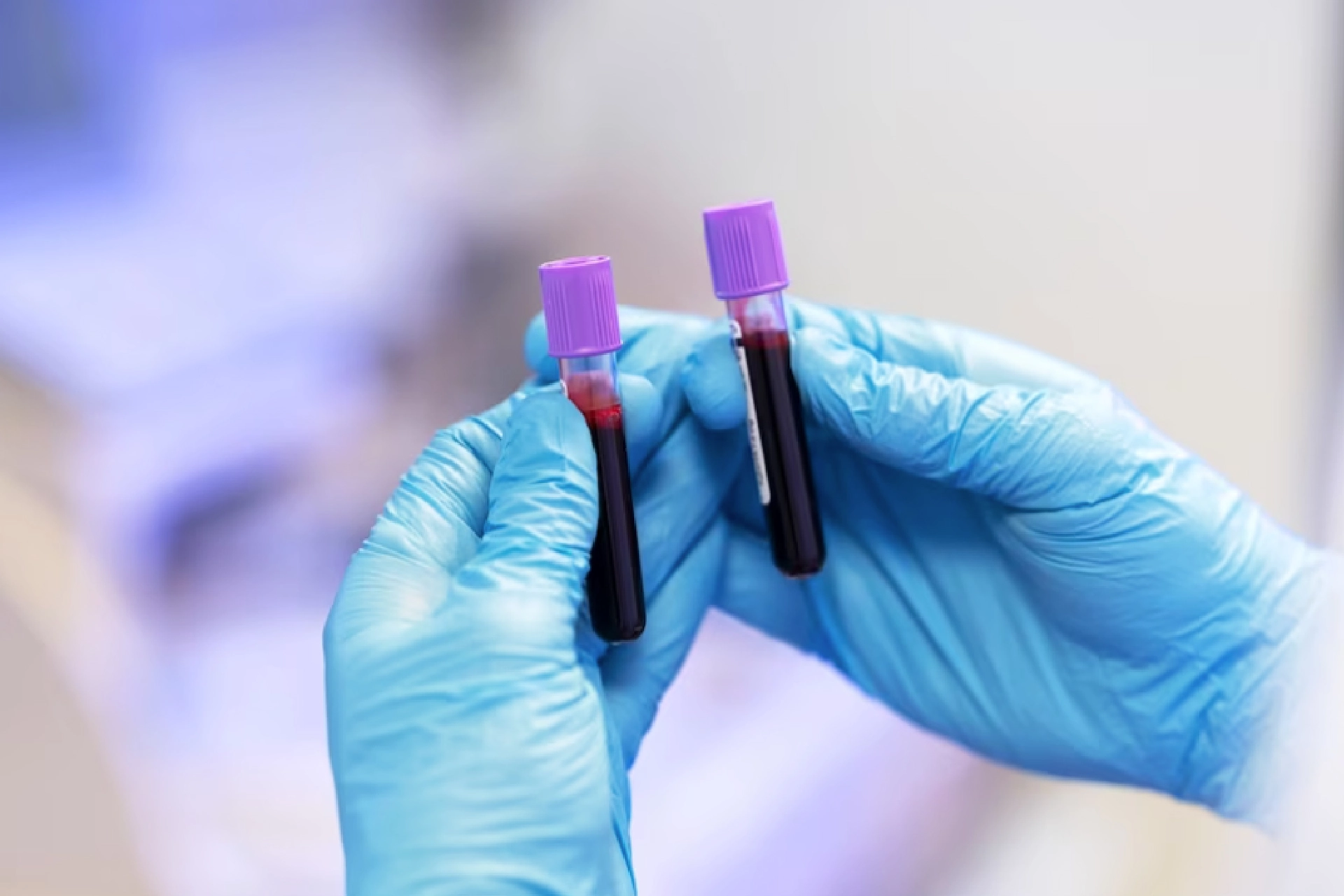Health Tests | 4 min read
D-Dimer Test: What is the Significance of this Test in COVID?
Medically reviewed by
Table of Content
Key Takeaways
- D-dimer test means a test that checks for blood clots in the body
- Elevated D-dimer levels indicate you have contracted COVID
- Normal D-dimer levels indicate you do not have blood clotting disorder
COVID-19, the respiratory disease, has caused many deaths globally. The most common mode of transmission of coronavirus is through respiratory droplets. The virus has the remarkable ability to undergo mutations as a result of which the usual RT-PCR COVID tests may give false-negative results. While you may be affected by common COVID-19 symptoms such as loss of taste, fever, sore throat and general fatigue, an RT-PCR test may show negative results. Only a lung investigation may reveal the presence of coronavirus in your body. To reduce chances of false-negative results, various tests like the D-dimer test has been developed. The D-dimer test is used when the patient shows symptoms but has a negative result on an RT-PCR test [1]. To understand more about the D-dimer test and its significance in detecting the presence of coronavirus in your body, read on.
Additional read: Coronavirus Reinfection: An Important Guide To How Long Your Immunity Lasts
D-dimer meaning
D-dimer refers to the fibrin degradation product. Whenever you face bleeding in your body, it tries to stop it. Your body does so by forming a clump of cells to build a network. To make this network, your body needs a protein known as fibrin. Fibrin forms a crisscross arrangement at the bleeding site and makes the blood to clot in that area.
Check Offers on D-Dimer TestOnce your wound is healed, the clot starts degrading and fibrin is broken down. During this time, it produces some fibrin degradation products. One such fibrin degradation products is D-dimer. It is called D-dimer as both D fragments of the protein are joined by a cross-link.
Why is it important to do a D-dimer test during COVID?
D-Dimer test means a fibrin degradation fragment test that is performed to assess blood clotting disorders. During COVID, your body develops a lot of clots, especially in your lungs. This is because lungs are the main organs to get affected when the severity of COVID infection increases.
The presence of clots in your lungs makes it difficult for you to breathe. As a result, your blood circulation is hampered. Your body tries to disintegrate these clots. The D-dimer quantitative test aims to detect the presence of D-dimer in your body. For that, you need to get your test done within 8 hours after which D-dimer gets eliminated from your kidney.
Additional read: Home Healthy Diet for COVID Survivors: What Foods Boost your Immunity?6 Conditions Assessed by D-Dimer Test:-
There are 6 conditions that can be assessed by a D-Dimer Test as shown in the infographic:-

How is a D-dimer test done?
This test is done by taking a blood sample from your arm. After pricking your vein, a blood sample is collected. This test does not require you to follow any specific instructions like fasting. In that sense, it is quite an easy test to take.
Different assays are used to measure D-dimer levels, which include the following.
- Whole blood analysis
- Enzyme-linked immunofluorescence assay
- Enzyme-linked immunosorbent assay
- Latex-enhanced immunoturbidometric assay

How to infer D-dimer blood test results?
An elevated D-dimer levels reveal the presence of excess clots. This could be dangerous if you have contracted a COVID infection. The D-dimer test assesses the severity of your infection [2]. A study revealed D-dimer levels of greater than 0.5 μg/ml seen in patients with severe COVID-19 infection [3].
Since breathing becomes difficult, doing this test can ascertain if you require oxygen supply in the future. When your blood reports show positive D-dimer test results, it indicates high number of fibrin degradation products. This means there are a greater number of blood clots in your lungs. If not checked and managed properly, D-dimer levels may further increase. This can cause organ failure, so be watchful. If your test results show normal D-dimer levels, it means you are not affected by any blood clotting disorder.
As you now understand, an increase of D-dimer levels in your blood indicates the presence of a clot in your body. This could mean that you have contracted the novel coronavirus disease. With the help of this test, you can also assess the severity of the disease. In case you see signs of COVID-19 in spite of a negative RT PCR test, do not hesitate to get yourself tested. Book health tests on Bajaj Finserv Health within minutes. You can also enjoy deals and discounts on lab tests and be vigilant about your health.
References
- https://journals.plos.org/plosone/article?id=10.1371/journal.pone.0256744
- https://www.hematology.org/covid-19/covid-19-and-d-dimer
- https://www.ncbi.nlm.nih.gov/pmc/articles/PMC7384402/
Disclaimer
Please note that this article is solely meant for informational purposes and Bajaj Finserv Health Limited (“BFHL”) does not shoulder any responsibility of the views/advice/information expressed/given by the writer/reviewer/originator. This article should not be considered as a substitute for any medical advice, diagnosis or treatment. Always consult with your trusted physician/qualified healthcare professional to evaluate your medical condition. The above article has been reviewed by a qualified doctor and BFHL is not responsible for any damages for any information or services provided by any third party.





